The Bachelor of Fiqh and Fatwa (Hons) is designed to provide students with specialized knowledge in Islamic jurisprudence (Fiqh) and the formulation of Islamic legal rulings (Fatwa). This program prepares graduates to serve as experts in Syariah consultancy, capable of addressing modern legal, social, and financial issues from an Islamic perspective. It equips students with the critical thinking skills and comprehensive understanding needed to interpret and apply Islamic rulings in various contemporary contexts.
- Specialization in Fiqh and Fatwa: The program emphasizes deep knowledge of Islamic legal theory (Usul al-Fiqh) and the process of fatwa issuance, making it highly relevant for those aspiring to work in Syariah governance and advisory roles.
- Contextual Relevance: Students are trained to apply classical Islamic principles to modern challenges, particularly in areas like finance, Islamic administration and governance, .
- Practical Application: Through case studies, research projects, and internships, students gain real-world experience in addressing current issues using Islamic legal frameworks.
This is a 4-year, full-time program.
- Core Subjects: The curriculum covers key subjects in Syariah which includes Fiqh, Usul al-Fiqh (principles of Islamic jurisprudence), Qawaid Fiqhiyyah (legal maxims), Fatwa Studies, Fiqh Al-Qadha’, Maqasid Al-Syariah, and Al-Siyasah Al-Syar’iyyah.
- Electives: Students can choose from specialized topics such as Islamic finance, Islamic Judiciary, Islamic Astronomy (Falak), Law, Food Science, Computer Applications, biomedical ethics in Islam, and international fatwa rulings, allowing them to tailor their studies to their areas of interest.
- Research Opportunities: The program encourages students to engage in research, particularly in developing fatwa on emerging issues such as technology, medicine, and environmental ethics.
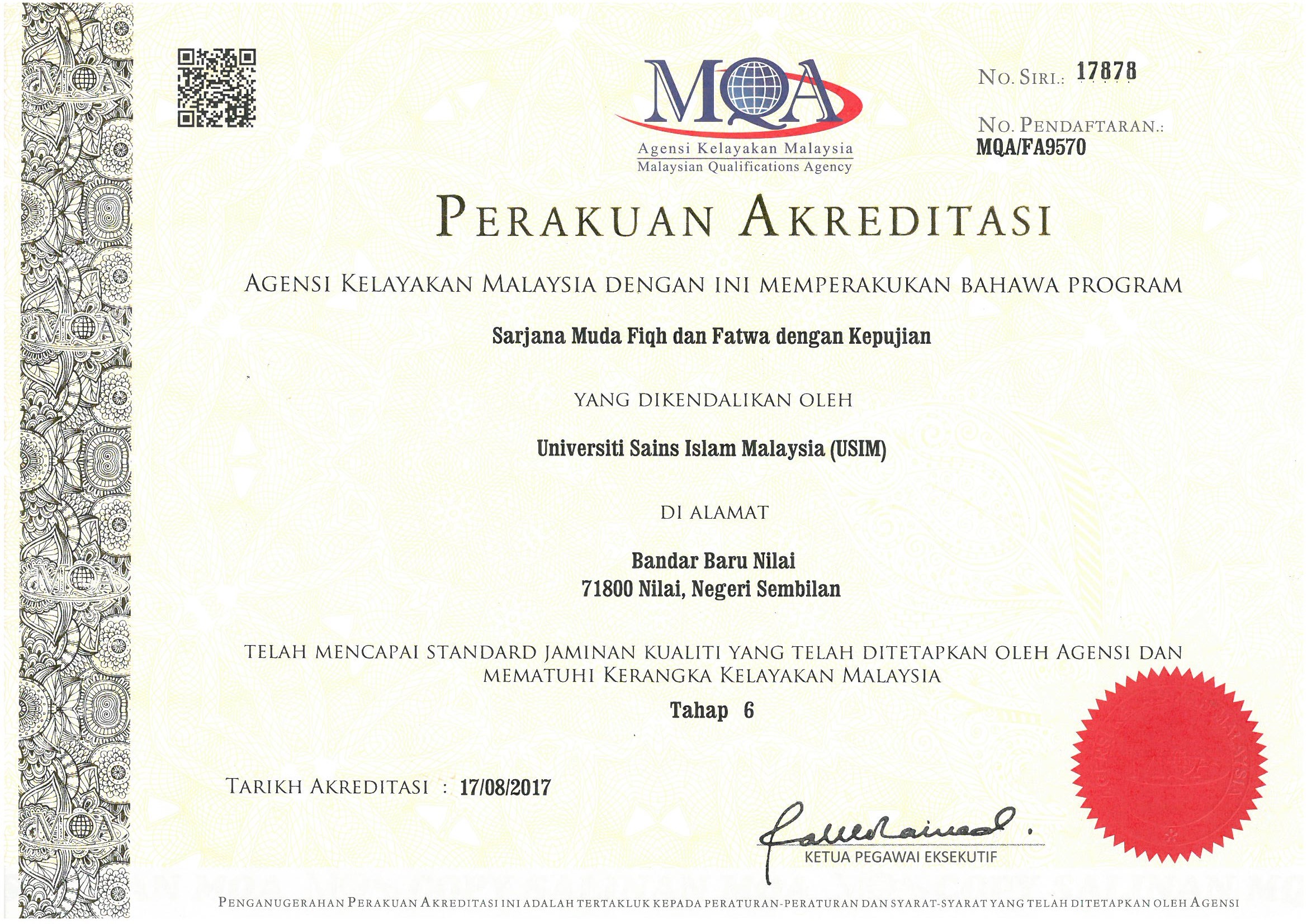
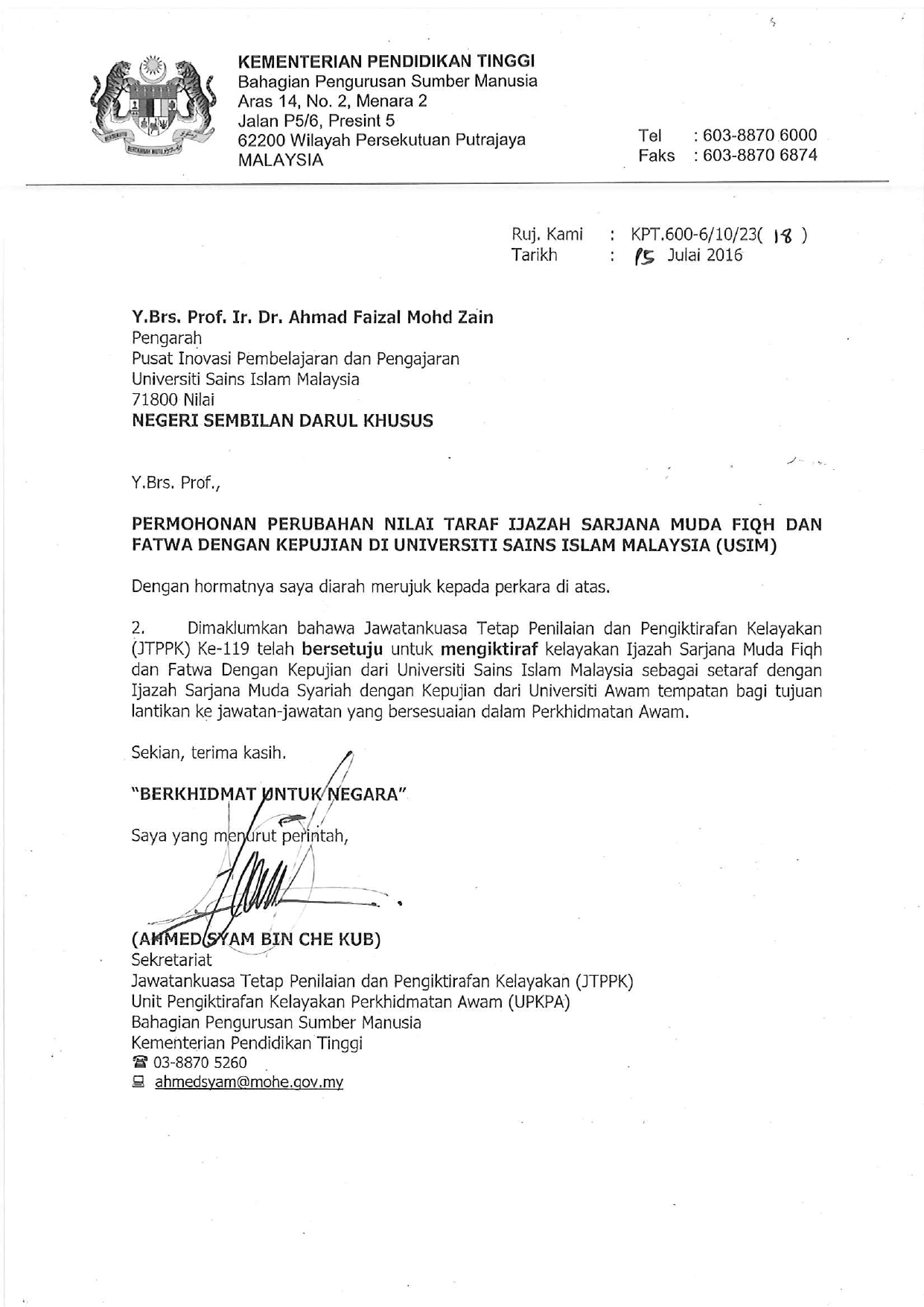
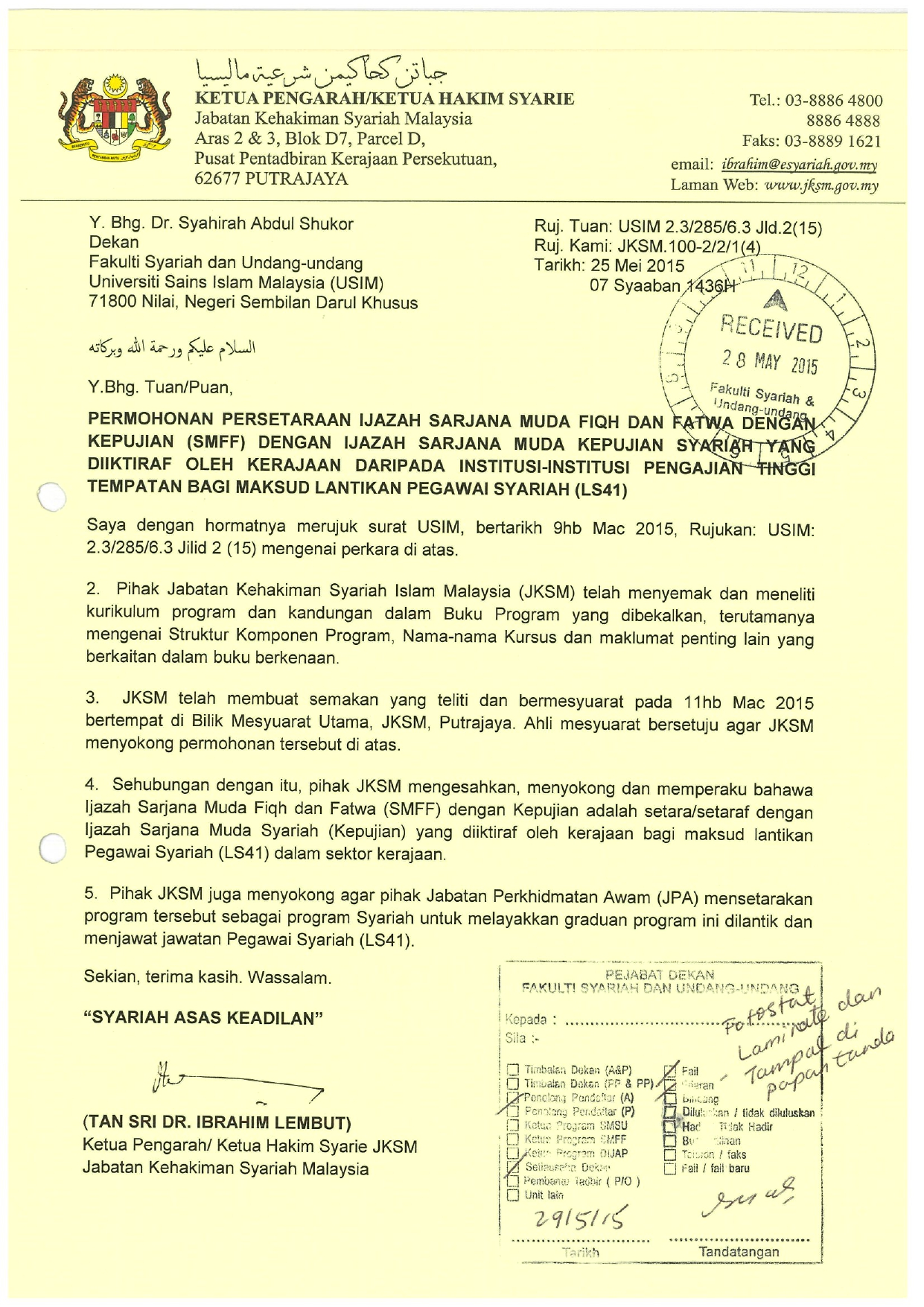
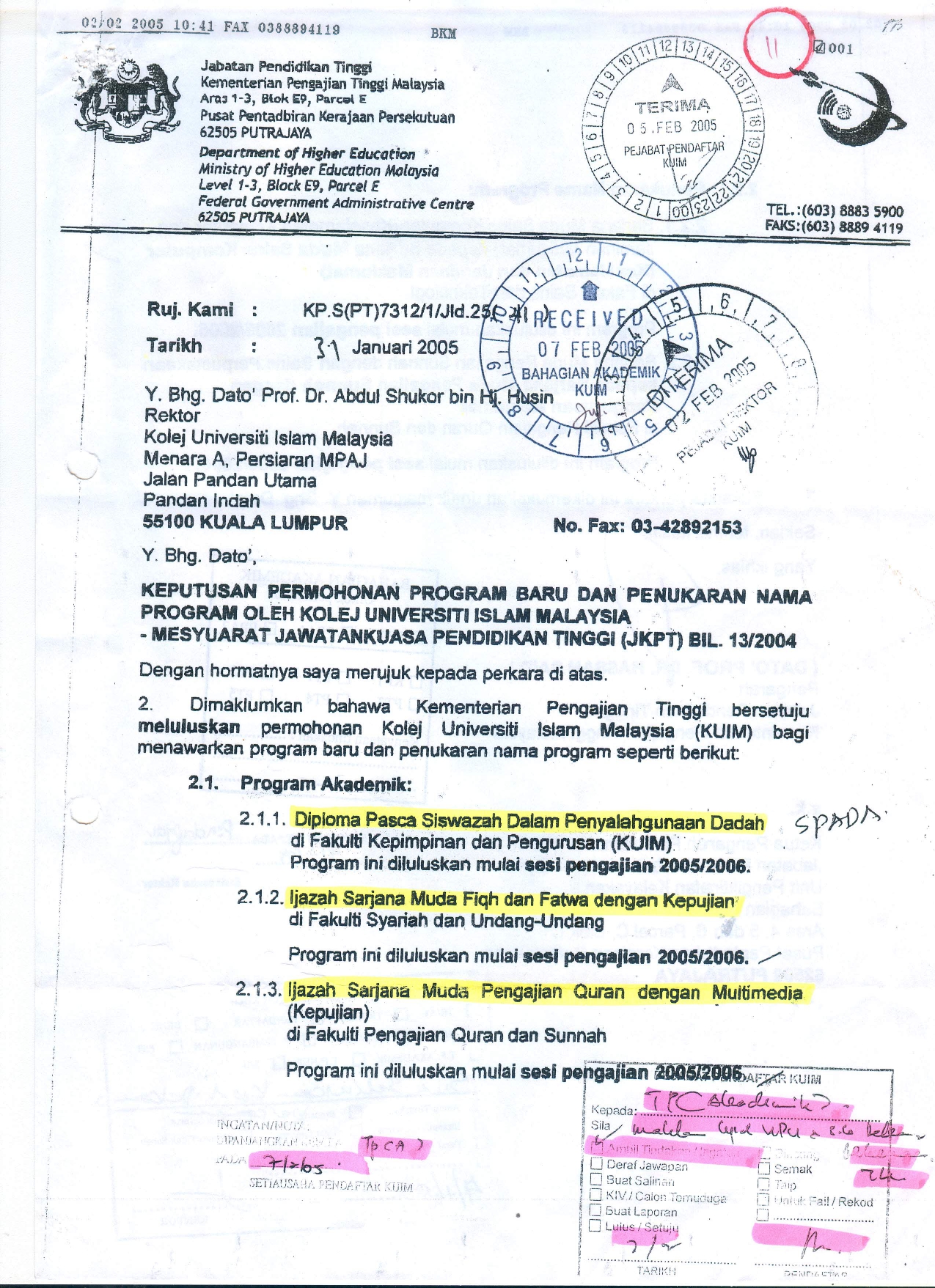
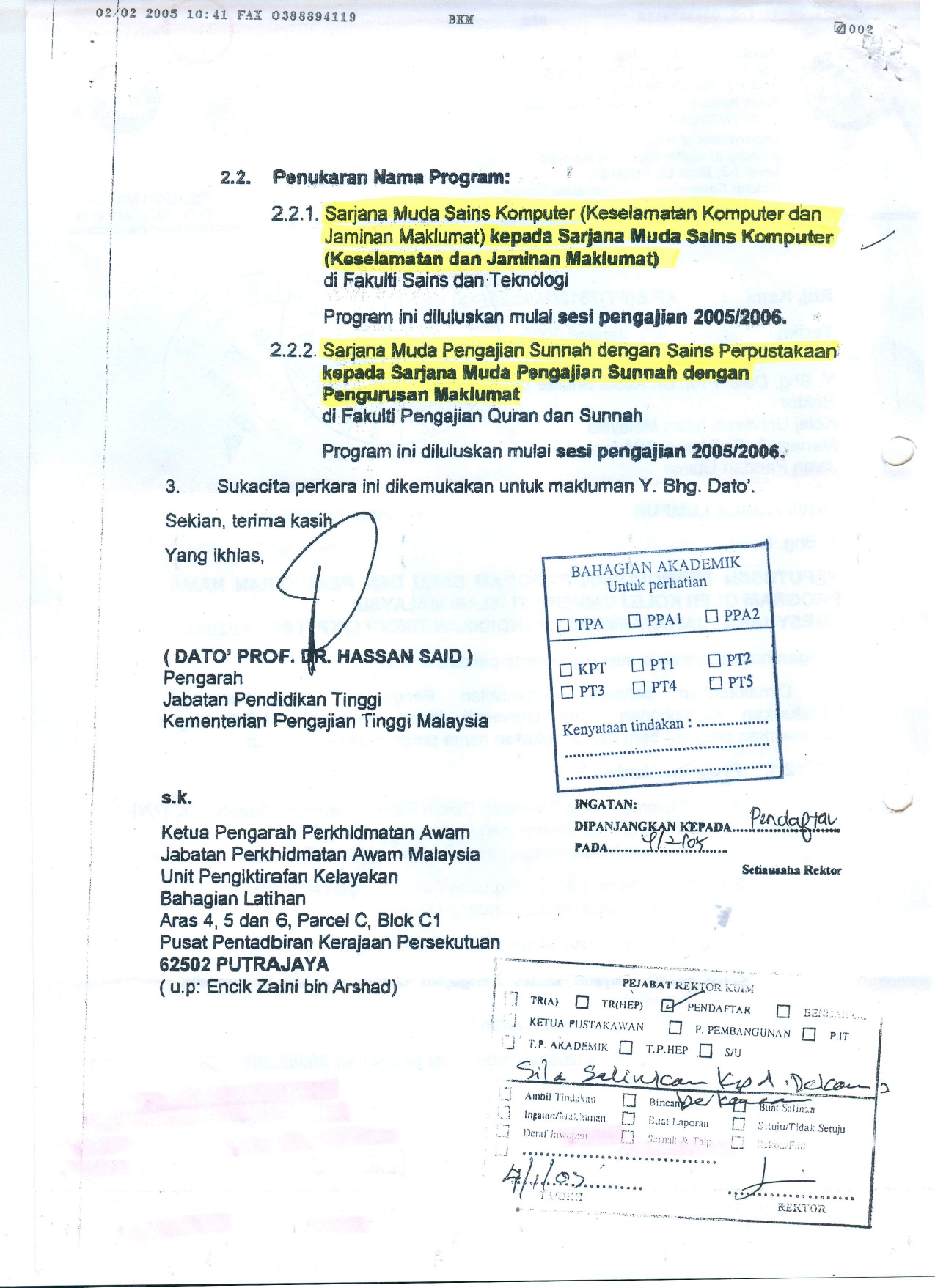
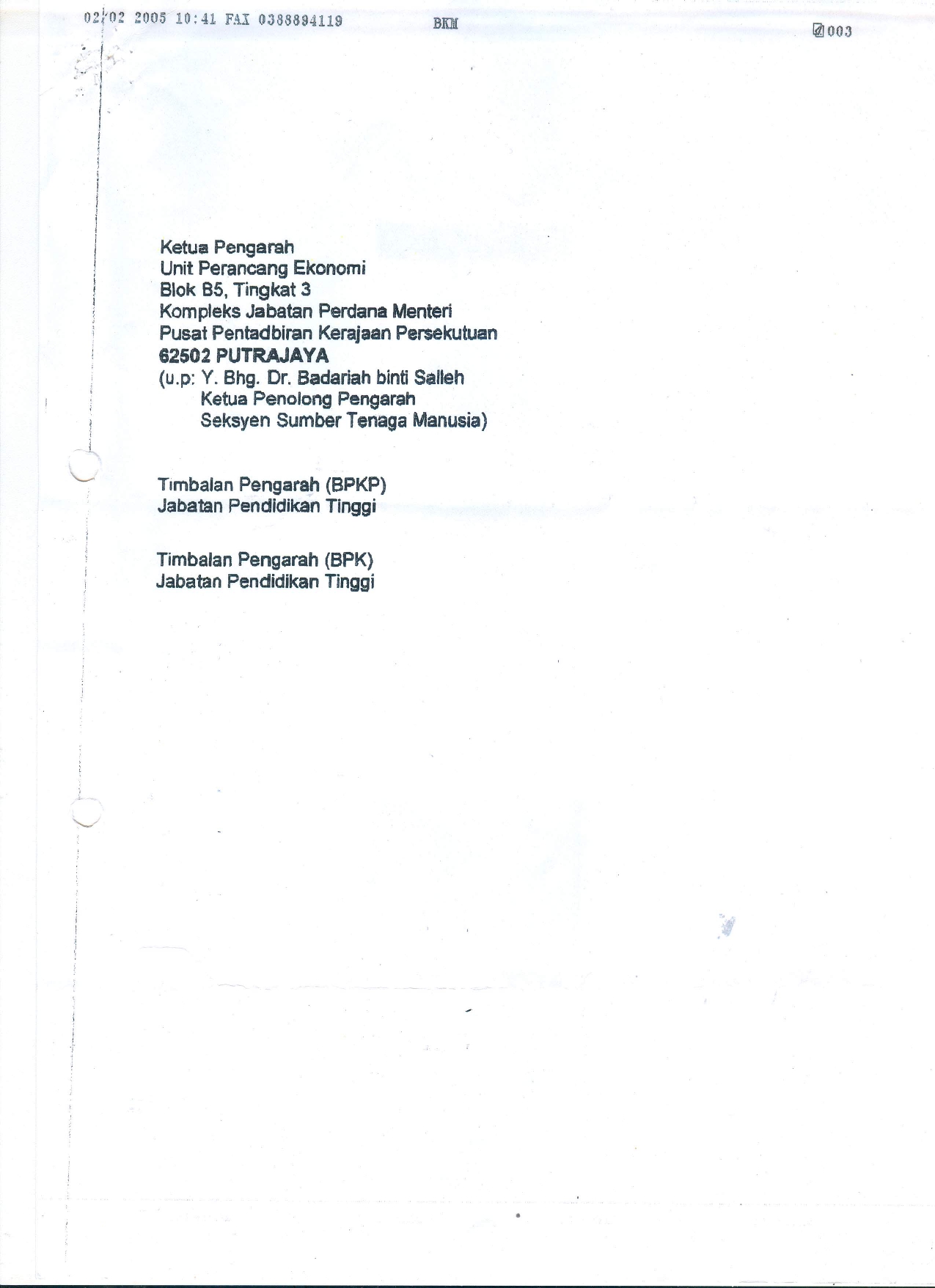
Graduates of the Bachelor of Fiqh and Fatwa (Hons) are well-equipped to take on specialized roles in:
- Syariah Advisory and Consultancy: Working with Islamic financial institutions, legal bodies, and businesses to provide fatwa and legal opinions.
- Religious and Government Bodies: Serving as advisors in Syariah courts, religious councils, and regulatory authorities.
- Academic and Research: Engaging in academic teaching and research on Islamic law and fatwa.
- Non-Governmental Organizations (NGOs): Providing expertise in humanitarian and social welfare issues from a Syariah perspective.
- Falak Digital Learning Space (FDLS): an innovative educational platform dedicated to the study of Islamic Astronomy (Falak). It integrates digital tools and resources to enhance the learning and teaching of Falak, allowing students and researchers to explore and understand Islamic astronomical concepts and practices. The FDLS provides access to various digital resources, including interactive modules, simulations, and databases that support the study of celestial bodies, timekeeping, and other related subjects. It’s designed to foster a deeper understanding of Islamic astronomy through the use of modern technology, making it more accessible and engaging for students.
- Fatwa Clinics and Moot Court: Practical learning spaces where students simulate real fatwa rulings and engage in Syariah-related legal scenarios.
- Extensive Library Resources: Students have access to a wide range of classical Islamic texts, legal databases, and contemporary fatwa publications, providing them with the tools needed for in-depth research.
- Support and Mentorship: Faculty mentors guide students through complex legal issues and help them develop both their academic and practical skills in fatwa issuance.
Testimonials and Success Stories:
“The program gave me the unique opportunity to explore Islamic legal rulings in depth while also learning how to apply them to current societal issues. It truly prepared me for a career in Syariah consultancy.” – Graduate of the Bachelor of Fiqh and Fatwa (Hons).
